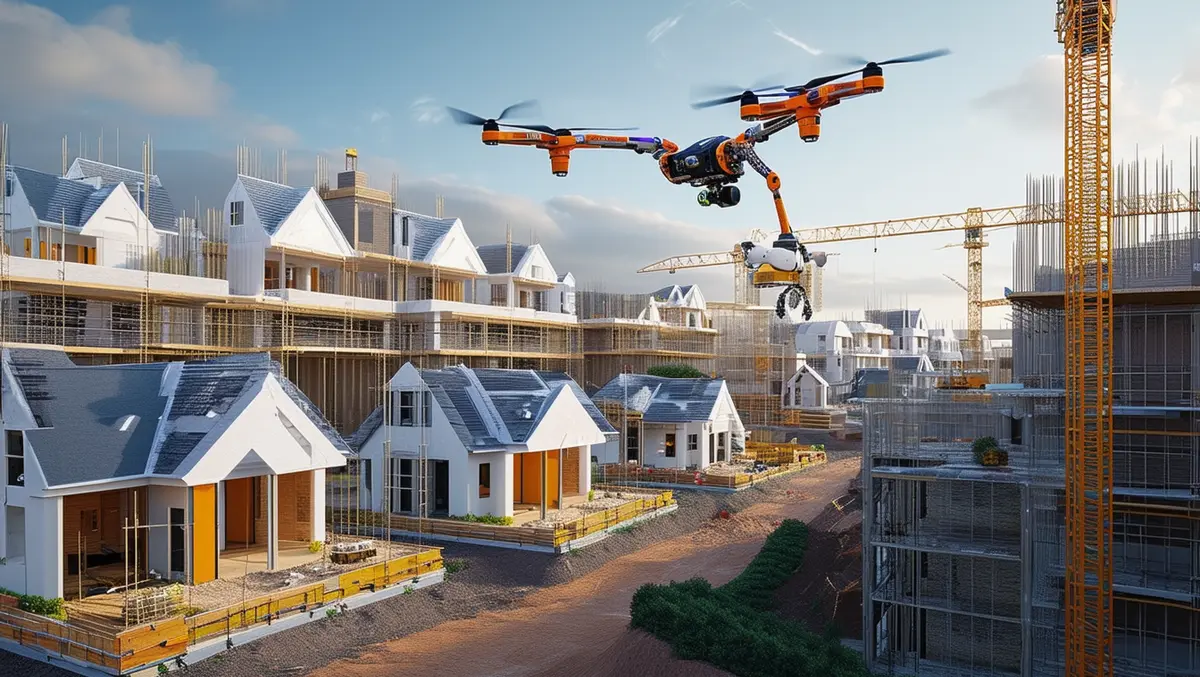
Labour stresses tech adoption in housing to tackle worker gap
Labour's housing plan underscores the necessity for accelerated adoption of technology to mitigate worker shortages in the construction sector, a new report highlights.
The UK is faced with a daunting list of construction projects, including climate resilience infrastructure, data centres, and the completion of HS2 and Hinkley nuclear power stations, all while aiming to deliver 300,000 homes annually.
According to recent data from recruitment company Randstad, the construction labour force in the UK has decreased from 2.6 million in 2008 to 2.1 million in 2023. With the industry needing to recruit an additional half a million workers in the coming years, simply increasing the number of workers is not deemed sufficient. The traditionally slow-to-evolve construction industry needs a significant digital transformation to improve productivity and safety, which could positively impact hiring and retention.
A Royal Institution of British Architects report found that although 41% of professionals were using artificial intelligence (AI), 36% perceived it as a threat. Similarly, a 2023 report from the Royal Institution of Chartered Surveyors indicated that only 18% of surveyors had utilised digital technologies in most or all of their projects.
Chris Wilson, Senior Sales Director (UK & Ireland) at Trimble, commented, "With an ageing workforce and an ever-growing list of important construction projects, many developed countries are finding it tough to keep up with the demand. This is one structural barrier for the industry to tackle - another, just as important, is its approach to new technologies."
The construction sector is noted for its slow tech adoption, which hinders its ability to meet rising demand, particularly with a dwindling workforce. The Office for National Statistics (ONS) reports consistently lower productivity in the construction industry compared to the UK average, with little change in daily work practices over the past century.
Implementing new technologies like AI, Digital Twins, wearables, and drones could increase productivity and efficiency, allowing fewer workers to achieve more. These technologies also have the potential to simplify and enhance safety on site, reducing the required skill level and making construction roles more appealing to prospective workers. For instance, AI-driven chatbots, trained on specific language models, could offer immediate, precise answers to workers' queries, enhancing safety without the need for constant supervisor oversight.
Safety on construction sites remains a pressing concern, with a significant rise in injuries last year. FirstMats estimates that workplace injuries cost the industry 2.6 million working days annually. Enhanced safety measures, supported by technologies like AI chatbots and wearable devices, could alleviate some of these issues by providing quick access to information and ensuring operations are conducted safely and accurately.
The adoption of 'Digital Twins', or real-time digitised models like Building Information Models (BIM), is gradually increasing in constructions and urban planning. However, regulations have not kept pace with these advancements. Standardising data collection methods and tracking can improve efficiency by sharing insights between projects, thereby minimising wasted resources.
Technological tools such as AI-assisted digital workforce management systems can offer better resource management and easy access to digital assets like reports or models. These tools can make construction, maintenance, and refurbishment more precise, reducing time and cost overruns.
Reform in planning permission and zoning is also critical for advancing the UK's infrastructure and housing projects. The House Builders Federation's December 2023 Housing Pipeline report revealed a continuing decline in planning permissions for new homes, predicted to hit record lows. Enhancing access to accurate data through technologies like scanning and modelling would facilitate more informed decisions, aiding necessary zoning reforms.
Chris Wilson remarked, "While many industries are rapidly modernising, there are still some UK contractors hesitant to adopt new tech such as AI, Digital Twins, machine control, or even something like a digital workforce management platform. These tools, as well as upskilling your workforce to use them effectively, will be absolutely vital if the UK is to increase productivity and create resilient infrastructure that's made on time and within budget."


